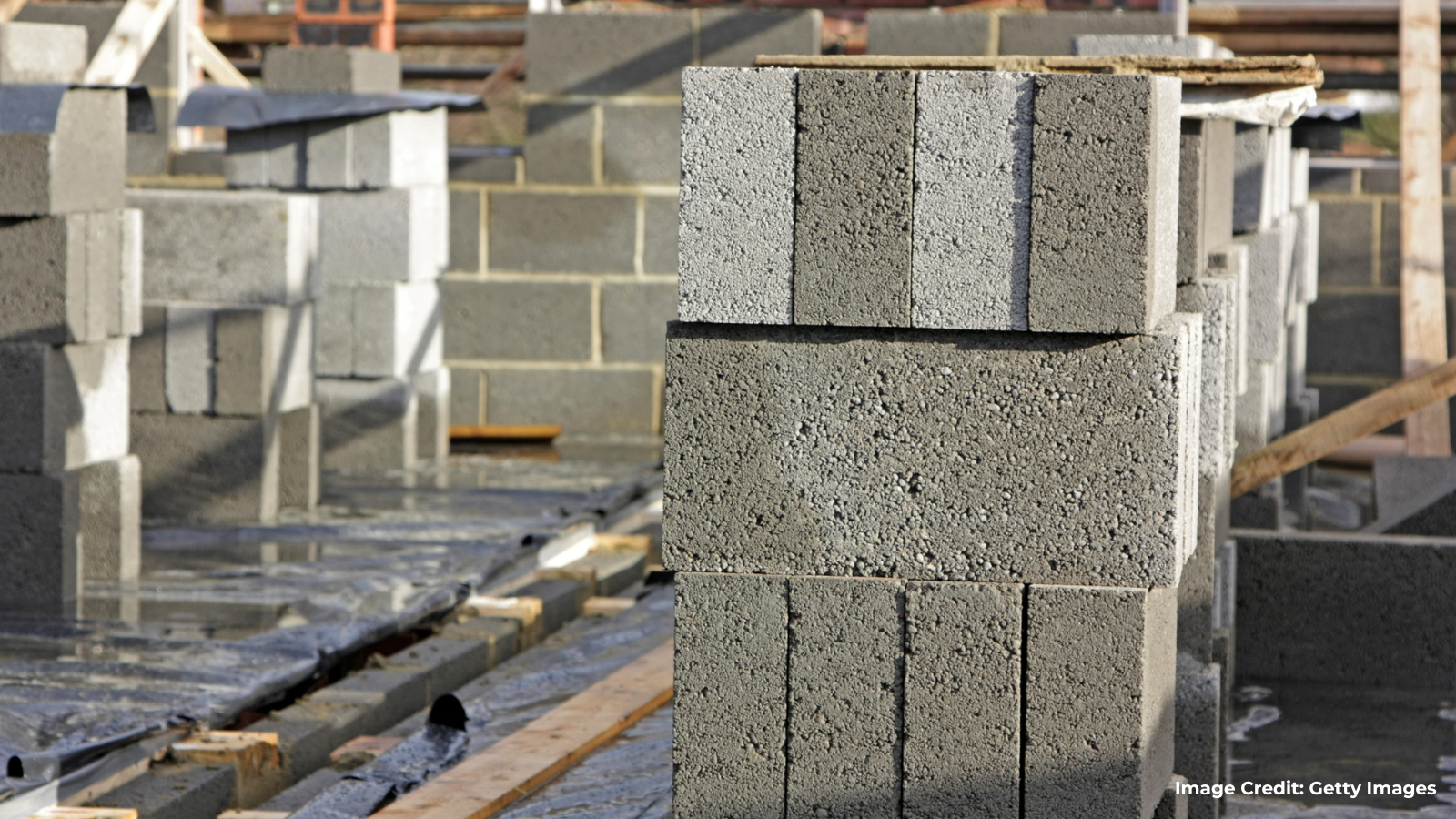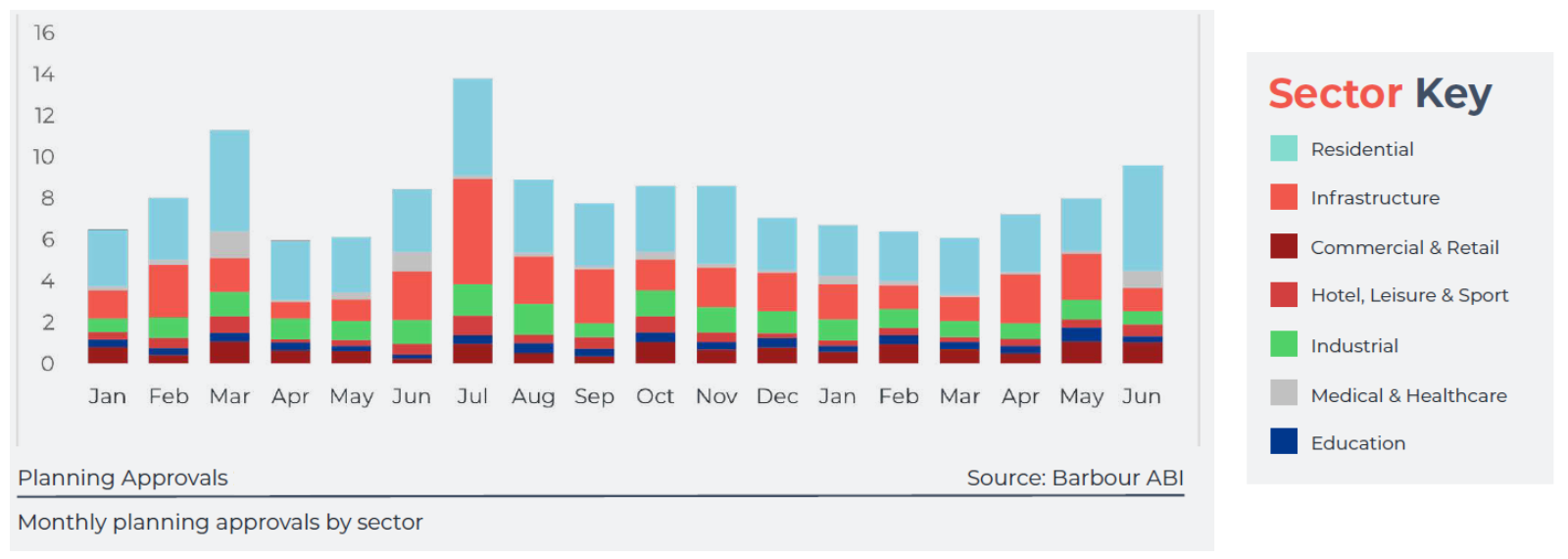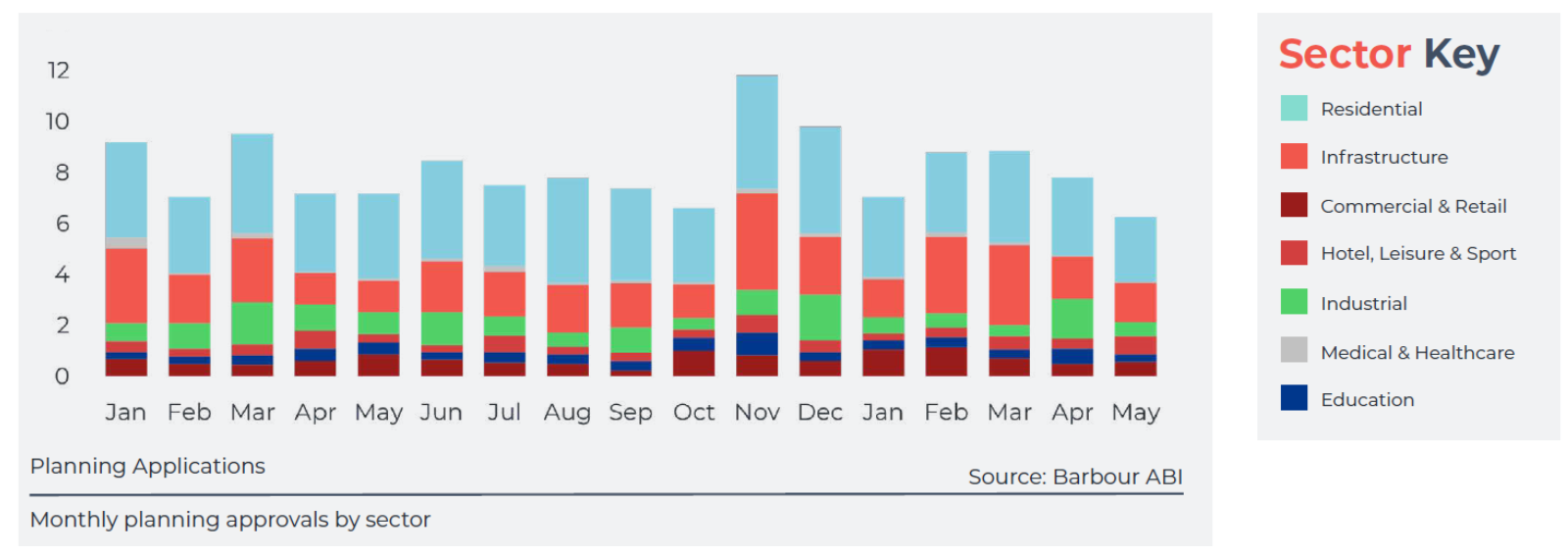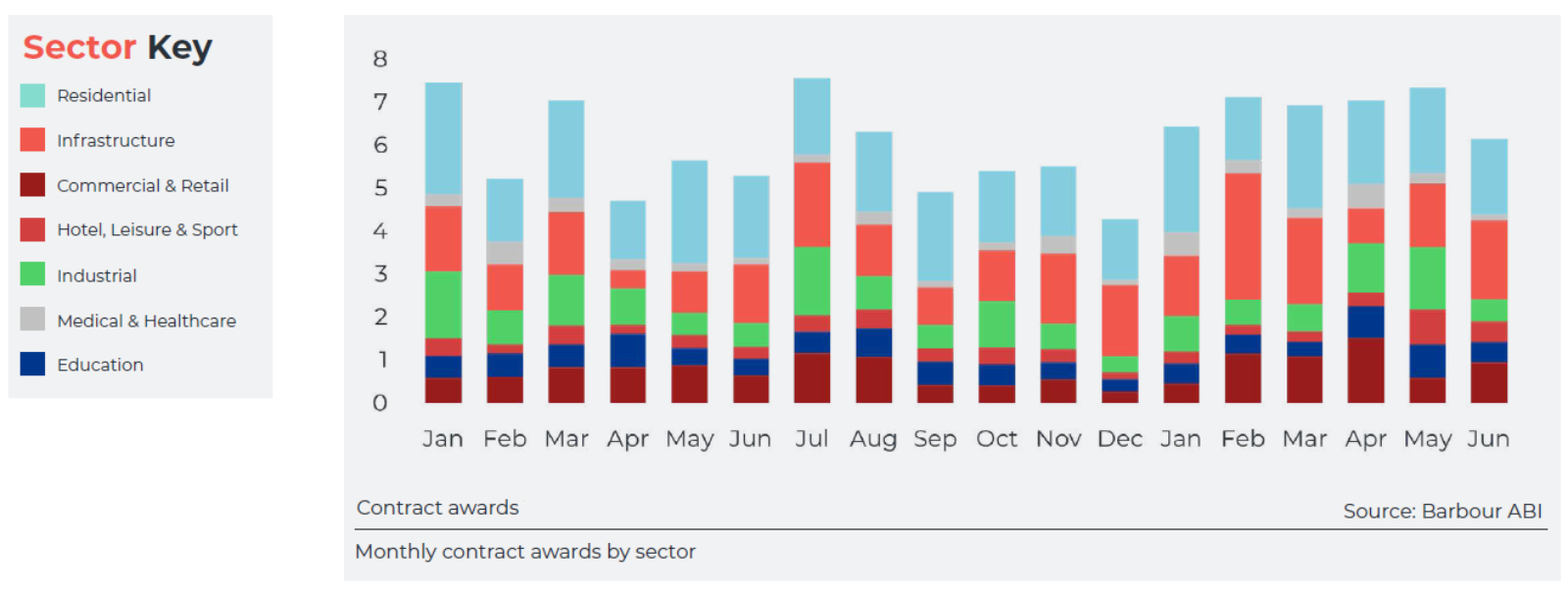Planning approvals increased by twenty percent in June, ahead of new housebuilding drive by Labour government
[edit] Planning approvals increased by 20% in June ahead of Labour’s new drive for housebuilding
- Planning approvals provide early boost for Labour’s housebuilding goals.
- Planning applications will be a key indicator of the impact of the new government in coming months, according to Barbour ABI analysts.
- Contracts Awards fall 16% from May in unstable month.
Planning approvals saw a welcome rise in June ahead of the general election, reaching $9.6bn in value. This was a 14% increase from June 2023 and a 30% increase from May according to Barbour ABI’s latest analysis.
Medical & healthcare played a large part with the £700m Monklands Hospital Replacement Project getting the green light, however residential approvals were also up 103% for June - the highest in over 18 months. The approval of a 1500 house development in Manchester played a key part of the rise.
Ed Griffiths, head of business and client analytics at Barbour ABI commented:
“Kier Starmer’s Labour Party has pledged to unlock the planning system to build 1.5 million homes during the current parliament, so this uplift in approvals will come as welcome news to the incoming government.
“Labour ran on promises of changing planning policy and energy reform, but any announcements will take a while before they impact shovels in the ground. As a result, business confidence will play a key part in the early days of the government. In particular, we may see more activity in Residential and Green Energy sectors now the election has been decided.”
[edit] Planning applications on pause ahead of election
Planning applications in May continued to fall as stasis gripped the industry ahead of the election. Overall, application value was down 12% from May 2023 and was at its lowest for over 18 months. Residential and Infrastructure, the two highest value sectors, continued to feel the squeeze, falling 16% and 6% respectively from the previous month.
Griffiths continued, “Looking ahead, all eyes will be on planning applications following the election. Businesses have long been holding off committing to new projects due to political and economic uncertainty, so this is where we should see the biggest shifts if Labour’s victory turns out to be the news the industry was waiting for.”
Contracts Awards were unstable in June, falling 16% overall from last month. A disappointing month after a positive May saw Education and Industrial dipping the most. Gains in Commercial & Retail and Infrastructure were the only positives as all other sectors fell behind. Residential contract awards were the most stable, falling just 11%.
[edit] Related articles on Designing Buildings
- April turn for the worse, for construction, as market seesawing continues
- Construction contract awards jump to £7.3bn in May as uncertainty continues
- Construction industry revs engines in January
- Education and Health applications shine in subdued construction October market
- Homeowners turn to green energy upgrades as home improvement activity declines
- Infrastructure tumbles, adding to construction industry woes
- New engineering data shows over £52bn of projects were awarded to top 50 firms in the last year
- Residential takes the reins from infrastructure as contract awards even out
- Subdued planning environment figures provide scant hope for house-building targets
- UK Construction saw an £11.1bn fall in spending in 2023
- New energy rules, a threat to towns and cities across UK
Featured articles and news
RTPI leader to become new CIOB Chief Executive Officer
Dr Victoria Hills MRTPI, FICE to take over after Caroline Gumble’s departure.
Social and affordable housing, a long term plan for delivery
The “Delivering a Decade of Renewal for Social and Affordable Housing” strategy sets out future path.
A change to adoptive architecture
Effects of global weather warming on architectural detailing, material choice and human interaction.
The proposed publicly owned and backed subsidiary of Homes England, to facilitate new homes.
How big is the problem and what can we do to mitigate the effects?
Overheating guidance and tools for building designers
A number of cool guides to help with the heat.
The UK's Modern Industrial Strategy: A 10 year plan
Previous consultation criticism, current key elements and general support with some persisting reservations.
Building Safety Regulator reforms
New roles, new staff and a new fast track service pave the way for a single construction regulator.
Architectural Technologist CPDs and Communications
CIAT CPD… and how you can do it!
Cooling centres and cool spaces
Managing extreme heat in cities by directing the public to places for heat stress relief and water sources.
Winter gardens: A brief history and warm variations
Extending the season with glass in different forms and terms.
Restoring Great Yarmouth's Winter Gardens
Transforming one of the least sustainable constructions imaginable.
Construction Skills Mission Board launch sector drive
Newly formed government and industry collaboration set strategy for recruiting an additional 100,000 construction workers a year.
New Architects Code comes into effect in September 2025
ARB Architects Code of Conduct and Practice available with ongoing consultation regarding guidance.
Welsh Skills Body (Medr) launches ambitious plan
The new skills body brings together funding and regulation of tertiary education and research for the devolved nation.
Paul Gandy FCIOB announced as next CIOB President
Former Tilbury Douglas CEO takes helm.
UK Infrastructure: A 10 Year Strategy. In brief with reactions
With the National Infrastructure and Service Transformation Authority (NISTA).




























Comments
People have got to realise why more affordable house are not built and what we have to do that changes that.
All politicians in all parties know two things, older people vote more, and home owners (aka older people) want their house to stay worth as much as it is as a minimum, but will vote for you if you make sure their house is worth more and more.
This being so, they do not want more houses built near them, lessoning the value and don't want anything at all built near them, hospitals, car parks, power systems, infrastructure, etc., lessoning the value.
So if we want more affordable homes, and to continue to have them; we need to out vote more than the people above, and make sure we vote in every election like the people above, and most important thing! to keep this going so everyone can have home they can buy... especially the first people who get them... when you get your home don't stop voting... don't worry if cheaper similar homes get built near you and DON'T! become one of the people above wanting to get mega rich because your house price goes up and up so you keep voting to stop houses getting built near you!
Politicians hold the keys to more house and more houses means cheaper houses, so:
we need to become reliable voters, and in larger numbers than the home owners
we need to donate to politicians, a little money from a larger number beat a few people who give a lot of money!
that money buys the politicians to do what they want, because the more money a politician has... the more likely they are to win elections
When they have won their election, they start to worry about the next one, unless they know that the same people are going to help them win again, then they have the time to do what the most people who helped them win wants! to get their votes again! and to get their little but more money next time! then they do what the most money wants again!
hope that makes sense, we need to tell each other; make a pacts with each other, lets get our homes for each other!